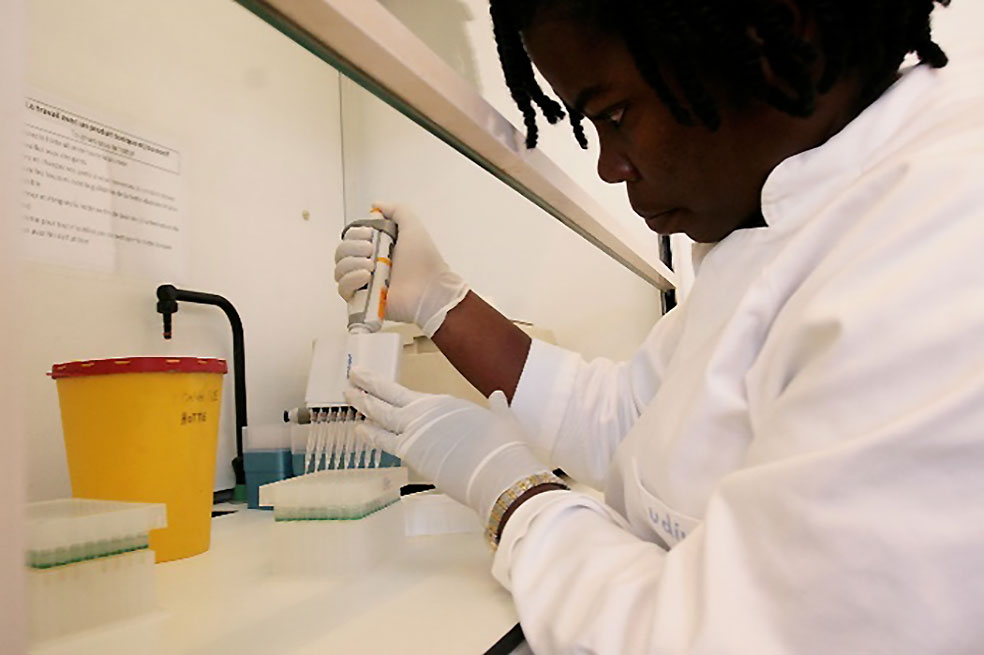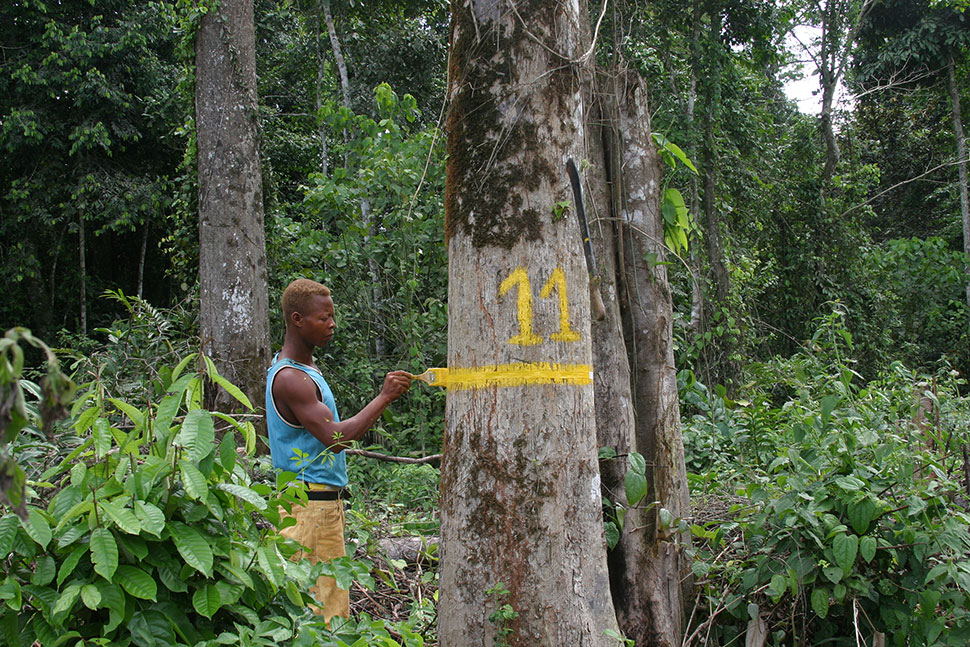In fact, the sustainable management of natural forests, incorporated in management plans, has become a core principle influencing forest policies in Central African countries.
However, ensuring the sustainability of forest management over the long term necessarily entails a better understanding of the functioning of the forest ecosystem in question.
Therefore, the DYNAFAC collective's research efforts are focused on a better understanding of biological diversity, interactions between living organisms, relationships between organisms and their habitats, but also of the relationships between these forests and the surrounding human populations.




